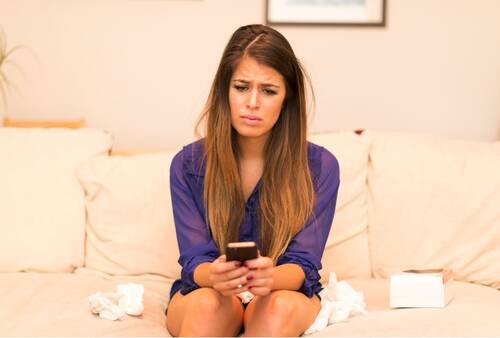
12 Sep How Does Social Media Actually Affect Our Mental Health?

When it comes to social media usage, you don’t need to complete a masters in mental health nursing to understand that the media we consume via socials can have a dramatic impact on our state of mind.
Of course, these impacts are not always negative. Inspirational, aspirational, and almost always aesthetically pleasing – engaging with social media content can help us experience a certain ‘joie de vivre’, it can fuel our drive and ambition to succeed, and in some ways, also enhance our sense of community, connectedness, and belonging.
On the flip side, however, it can also be argued that social media imposes immense societal pressure – particularly on the young and impressionable – as well as the tendency to compare ourselves to others. This can cause vulnerable content consumers to see themselves in a negative light – which can lead to emotional distress, and in some cases, even develop into serious mental health conditions such as eating disorders, anxiety, and depression.
The Pros: Advantages of Social Media Use
As mentioned earlier, incorporating the use of social media into our lives has both pros and cons. Some of the advantages? Consider, for instance;
The facilitation of social connectedness and support
For geographically isolated individuals in particular, joining online community groups via social media can help reduce feelings of loneliness and isolation.
Facebook groups and Instagram communities – including the recently introduced Instagram ‘broadcast channel’ chats set up by social media personalities to engage their followers – can help online users feel they belong to communities of like-minded peers who share their passions and interests.
Aspirational, goal-driven content inspires us to aim high
A large portion of the media we consume via social media platforms can be considered aspirational. From travel vlogs to fashion ‘inspo’, social media consumption can be an excellent gateway to real-life goal setting. See something you like, or feel inspired by someone’s posts? By consuming aspirational content, we are opening ourselves up to the possibilities of what could be.
However, engaging with this side of the internet can also turn dark – particularly when joy-stealing comparison rears its ugly head.
The Cons: How Social Media Can Affect Us Negatively
So, what are the cons of social media usage? Here are some of the ways social media can negatively affect our mental health:
Social media comparison and its adverse effect on our self-esteem
It goes without saying – social media is a highlight reel. By that, we mean, when we post to socials, we are invariably sharing our best bits. That work promotion, our romantic island holiday, or a new haircut – social media is the place to share our wins.
The payoff? For outside observers consuming these highlights, our own lives can look drab, dull, and at times, downright depressing by comparison. The dark side? If we get caught up in this ‘lack’ mindset, we can experience serious low moods – which, left untreated, have the potential to spiral into depression or anxiety.
Body image anxiety and fitting into the social media mould
Unless you’ve been living under a rock, you’ve likely already heard of the ‘clean girl’ aesthetic. We’ve all seen them – ‘naturally’ pretty and petite with fresh, glowing skin, understated makeup and chic, slicked-back hair, the clean girl has taken the Instagram world by storm.
But, what of us others for whom the clean girl look is unattainable? Women with fuller body shapes, textured skin, and less-than-perfect hair are all excluded from this aesthetic. Enter body image anxiety. Concerningly, 1 in 3 Australians are unhappy with the way they look, and experience low body image esteem as a result. Being exposed to images of clean girl perfection on Instagram surely cannot help this.
As discussed today, social media usage has pros and cons. Yes, it can uplift, inspire, connect, and engage us in ways that push us to be our best selves. Conversely, consuming social media content can also make us feel inadequate, potentially causing us to develop body image and self-esteem issues.
So, what is the key to combatting the negative impacts of social media on our mental health? Ensuring that we’re practising mindful usage of social media, and perhaps most importantly, learning to take everything we see on socials with a healthy dose of skepticism.
————
The information on MedicalResearch.com is provided for educational purposes only, and is in no way intended to diagnose, cure, or treat any medical or other condition.
Some links may be sponsored. Products, included compounded prescriptions above are not warranted or endorsed.
Always seek the advice of your physician or other qualified health and ask your doctor any questions you may have regarding a medical condition. In addition to all other limitations and disclaimers in this agreement, service provider and its third party providers disclaim any liability or loss in connection with the content provided on this website.
Editor’s note: This piece discusses mental health issues. If you have experienced suicidal thoughts or have lost someone to suicide and want to seek help, you can contact the Crisis Text Line by texting “START” to 741-741 or call the Suicide Prevention Lifeline at 800-273-8255.
Last Updated on September 17, 2024 by Marie Benz MD FAAD
